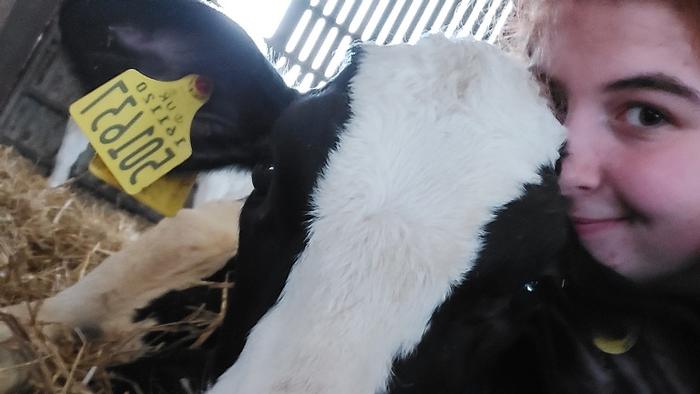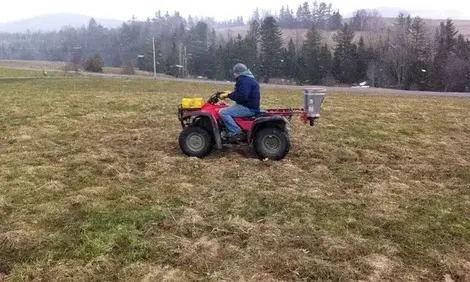



Farmers’ and vets’ views on the benefits of physiotherapy for cows underlined by student research
Both farmers and vets believe health and welfare of cows – and their productivity - can be by the use of physiotherapy, research by a Harper Adams student has suggested.
Natalie Stanley, who studied BSc (Hons) Veterinary Physiotherapy, spoke to both farmers and veterinary surgeons as part of her final year Honours Research Project to discover their views. Each received a tailored questionnaire which sought to ascertain their opinions – and what had led them to hold these views.
Natalie, who discovered her love for working with cattle during her time at Harper Adams and her work on the university’s farm, has since spoken about her work to researchers at another institution, sharing her findings and discussing other ways in which physiotherapy can be used to boost cattle health and productivity.
Among the benefits that large animal veterinary surgeons cited for physiotherapy, was its role in helping to tackle infectious diseases of the hoof among dairy cattle – helping to reduce severe and chronic lameness and thus increasing their milk yield.
Natalie explained: “Often only score three lameness is treated, as lower grade lameness is not easily detected.
“However, veterinary surgeons felt that a veterinary physiotherapist trained in lameness detection might provide faster and more accurate lameness treatment - and stop the productivity, health, and welfare of the cattle being compromised.”
Beef cattle were considered the least treatable group by large animal veterinary surgeons, due to their size. However, they felt dairy cattle could be helped with a variety of conditions, including downer cow and compartment syndrome, post-calving injury, nerve injuries, bulling injuries and more.
It was also suggested that veterinary physiotherapy was useful for calves with contracted tendons, fractures and even pneumonia.
Meanwhile, farmers’ responses to the questionnaire suggested they believed veterinary physiotherapy could improve herd welfare, meat quality, cow longevity, energy intakeand even milk yield.
Natalie added: “Farmers also considered physiotherapy as treatment for calves, nerve injuries and splits. However, the most positive outcome was the 79% interest from farmers in learning more about how veterinary physiotherapy can be beneficial in the cattle industry.
“Farmers felt that the main barrier to the use of physiotherapy wass a lack of knowledge in the area and that there was a need for teaching and information on where it could be helpful for cattle.”
Finally, both veterinary surgeons and cattle farmers agreed that intensive physiotherapy within the first 24-48 hours could help in emergency cases where cattle might otherwise face slaughter – with its use for downer cows helping to reduce secondary compartment syndrome, which could potentially save many cows and further herd longevity.
Natalie was invited to present on its findings to a farm group at the University of Bristol, where she was able to shed new light on how veterinary physiotherapy could benefit cattle and provide evidence that farmers are interested in its use.


